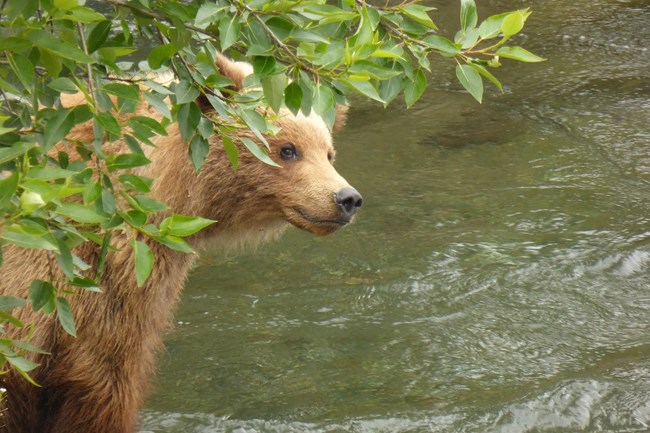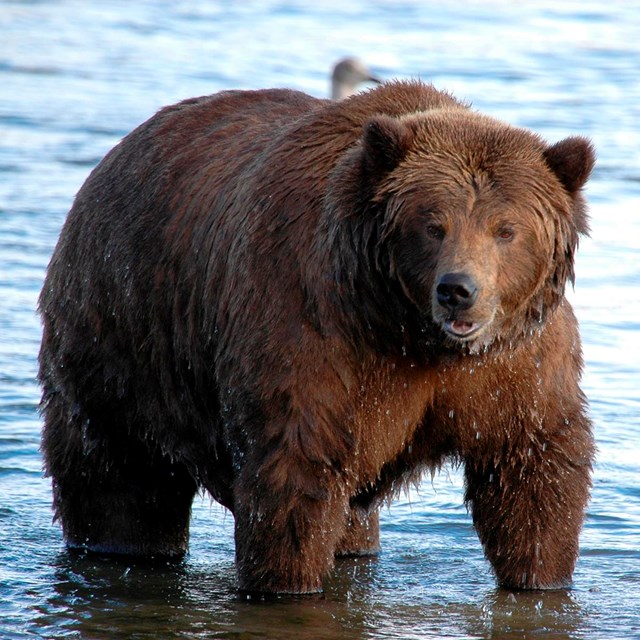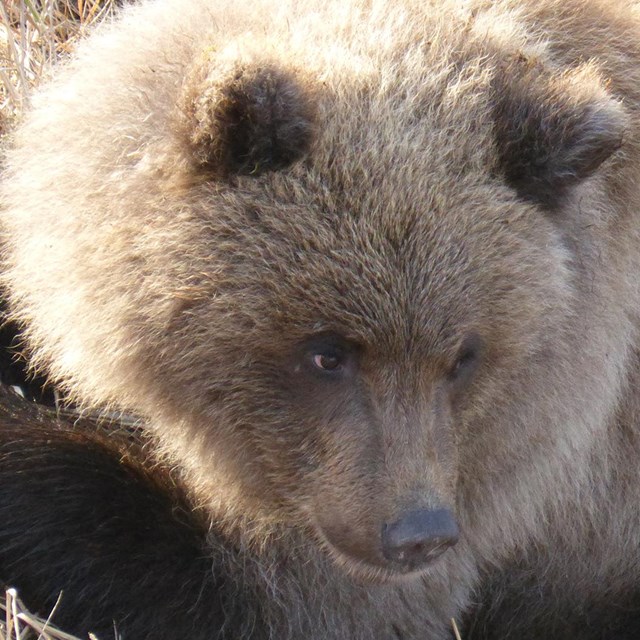
NPS Photo / Mike Fitz With the average male standing up to 7 feet tall and weighing 400-800lbs, the brown bear (Ursus arctos) (Inupiaq: akłaq) is one of the largest mammals that makes its home in Bering Land Bridge National Preserve. As omnivores, they are known to prey on fish, elk, moose, and caribou, but about 85% of their diet consists of vegetation and insects. In preparation for their 5-8 month hibernation period, brown bears can gain up to 400lbs in the fall. Although typically solitary, females can be seen with anywhere from 1-4 cubs that will stay with their mother for up to 2 years. With one of the lowest reproductive rates of any terrestrial mammal in North America, brown bears are vulnerable to a wide variety of ecological issues, including habitat loss and fragmentation, and climate change. Brown bears are not typically aggressive, unless they feel threatened or startled. To avoid conflict with bears, talk loudly while hiking, hike in open areas away from dense vegetation, and avoid approaching them if you see one. It is a good practice to keep all food and toiletries at least 100 feet away from camp in bear proof containers when camping in the backcountry.
|
Last updated: December 10, 2025



